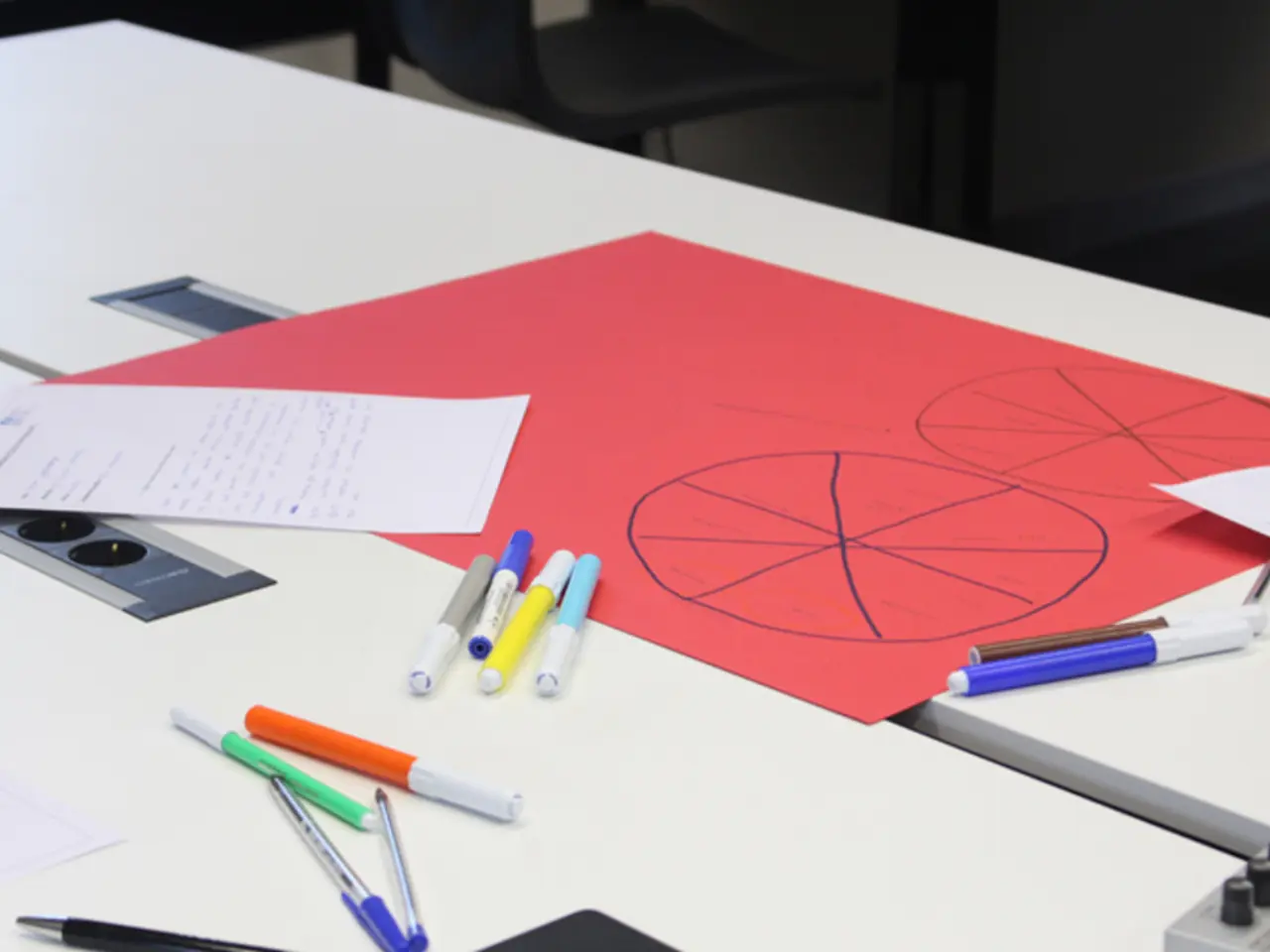Brain Manipulation Through Regular Behaviors
In the quest for behavioural freedom, it's essential to understand and work with the brain's inherent habit-forming nature, rather than against it. The key lies in skillfully redirecting neural tendencies towards patterns that enhance life, not diminish it.
Our daily routines are governed by a loop known as the cue-routine-reward system. This loop underpins nearly half of our daily actions and is fundamental to habit formation. The cue triggers a behaviour, the routine, which is followed by a reward, reinforcing the behaviour and making it more likely to recur.
The cue is the trigger, such as a time, place, emotional state, or signal, that tells your brain to start the habit routine. The routine is the behaviour or thought performed in response to the cue. The reward is the benefit or positive outcome that the brain receives after completing the routine, which reinforces the habit by creating a craving loop.
For effective habit change, targeting each component of the loop is crucial. Modifying the cue can make cues for good habits more obvious and cues for bad habits less noticeable or harder to encounter. Changing the routine involves replacing unwanted routines with better alternatives that respond to the same cue and produce similar rewards. Reinforcing or altering the reward makes rewards for new habits more satisfying and immediate, or diminishes rewards for bad habits to reduce cravings.
The brain's habit-forming mechanisms evolved to enhance survival by automating routine behaviours. However, understanding and consciously manipulating the cue-routine-reward loop enables habit creation, modification, or replacement by breaking or strengthening the neurological pattern underlying the habit.
Neurological studies show that the brain responds to clusters of environmental signals rather than isolated cues. Introducing a pattern interrupt during the malleable period can weaken the established pathway. Regular visualization of new behavioural patterns strengthens nascent neural pathways before they're physically enacted.
Regular meditation practice increases cortical thickness in regions associated with attention and self-regulation, while mindfulness practices have been shown to increase activation in prefrontal regions while reducing reactivity in reward centers. These techniques, which reduce cortisol levels, create the neurological conditions that support behavioural flexibility.
The brain continuously adapts to experience - this neuroplasticity represents both the challenge and the opportunity of habit change. With proper understanding and consistent application of brain-based strategies, even the most entrenched neural circuits can be rewired.
The most empowering insight from neuroscience research is that habits are not destiny but design. By understanding the cue-routine-reward loop, we can harness the power of habits to transform our lives, rather than being controlled by them.
[1] Duhigg, C. (2012). The Power of Habit: Why We Do What We Do in Life and Business. Random House. [2] Goldstein, N. (2015). The Brain That Changes Itself: Stories of Personal Triumph from the Frontiers of Brain Science. Penguin Books. [3] O'Reilly, R. C., & Farah, M. J. (2018). The Hidden Threat of Neuroplasticity. Current Biology, 28(16), R798-R800. [4] Woolley, R. (2018). The Brain's Way of Healing: Remarkable Discoveries and Recoveries from the Frontiers of Neuroplasticity. Penguin Books.
- In the realm of health-and-wellness, technology can help reinforce good habits by providing reminders and rewards for fitness-and-exercise, nutrition, and mental-health activities, making the cues for these beneficial routines more obvious.
- Social media, entertainment, and science can contribute to understanding the intricate cue-routine-reward loops that underpin our brain's habit formation, offering valuable insights for behavioral change.
- Adequate nutrition and mental-health care can strengthen our brain's neuroplasticity, allowing it to adapt and change more easily, making it possible to rewire even deeply ingrained habits.
- By applying strategies based on scientific research about the brain's habit-forming mechanisms, we can use technology to create, modify, or replace habits in the pursuit of improving our overall health and wellness.




